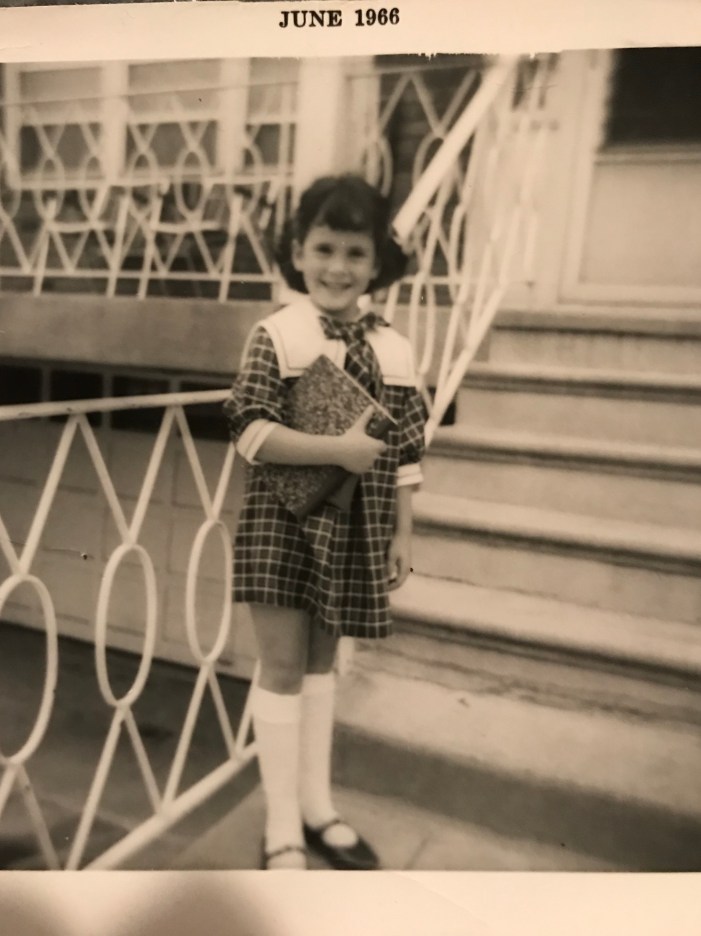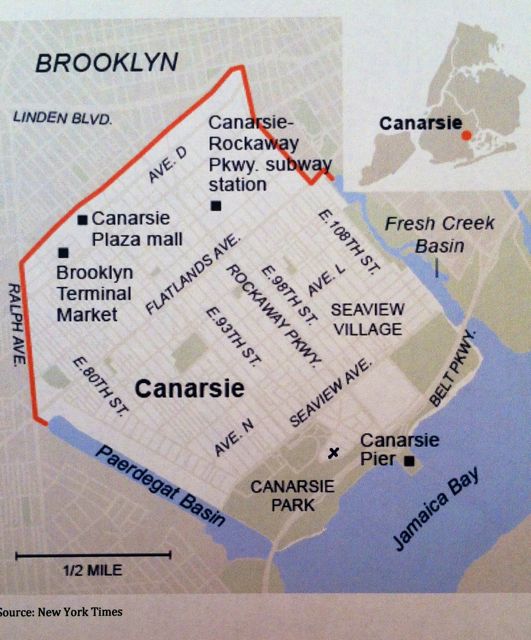I wonder sometimes how much of what I remember is real. This is especially true of my friendship with Susan.

I didn’t have many friends on my block. Somehow East 91st Street had an inordinate number of bullies and I was a target of their ridicule. Here are just a few examples: I was riding my bike when a couple of kids chased me thrusting a stick at my spokes hoping to knock me off, I was spat on as I walked home from synagogue on Rosh Hashana and my cat was mistreated (I wrote about that here). This was all at the hands of the Italian kids who lived at one end of our block. My brothers were occasionally called into service to scare them off. I knew enough not to generalize, after all, each of my brother’s best friends were Italian. But given all that I experienced, my friendship with Susan, who was also Italian but lived at the other end of the street, came as a surprise.
Susan was popular on the block and in my class. She was blonde and blue-eyed, with an up turned nose. She was rail thin. She was everything I was not. She could do a round-off, cartwheels and handstands. I will allow that I was athletic, but in a different way. I felt rooted to the ground by my thick bones and muscular frame. I could run and throw a ball, and my balance was good, so I didn’t feel clumsy, but I was unwilling to hurl myself into space to do any kind of gymnastics move. I didn’t have Susan’s grace or fearlessness, which is why this next part is so surprising.
Susan and I spent long hours teaching ourselves tricks on our bicycles. The street next to her house which abutted the weeds had very little traffic, so we would ride up and back endlessly, perfecting our moves. Starting simply by riding with no hands, ultimately, we were able to stand on our seats in an arabesque, one leg extended behind, our arms outstretched. I felt like I was flying. When we thought we were good enough, we invited our parents to watch our circus act. My mother was aghast. I think back and wonder, did I really do that? It seems so out of character. But, I did.
Susan loved horses and would draw them again and again. I came to share her enthusiasm, learning to draw them and reading horse-themed stories like Black Beauty and Misty of Chincoteague. She and I would gallop around her side lawn, her corner house had enough property to be considered a lawn, unlike the postage stamp we shared with our neighbors.

Susan and I were in the same class at PS 272. In 4th grade there was something called a ‘slam book’ that was all the rage. It was book made up of looseleaf pages fastened together, each page contained a list of favorites. Favorite TV star, favorite football team, but it also ranked the cutest girls in the class, smartest boys, etc. It was a measure of popularity and caused me great anxiety. The book made its way up and down the rows of the class while our teacher, Mrs. Feinberg, faced the chalkboard. For a while this was a daily occurrence. Kids ranked things and wrote comments anonymously. I was always afraid what I’d find when the book arrived at my desk. I think once I made it to fifth cutest in the class. Susan was always in the top three. In choosing to be my friend, I felt anointed, touched by her popularity.
Everything was so different about Susan’s family. Her mother, Maria, reminded me of June Cleaver. In my mind’s eye, I see her wearing a dress, with an apron, kitten heels and pearls. Her hair styled, lipstick applied. My mom and my Nana wore housedresses and slippers.
I remember one time Susan and I had a plan to practice our bicycle tricks. I rang her doorbell and was invited into the kitchen where her parents were each enjoying a bottle of beer. I don’t think I ever saw beer at my house. I can’t recall a single time. I knew what it was, I saw enough commercials during baseball games, but I didn’t know anyone who drank it. Susan was begging her father to let her have a taste. He relented. She took two quick swigs and we went out to our bicycles. Susan joked that after drinking the beer she wouldn’t feel it if she fell on her head. She giggled. I was shocked.
Susan’s Dad, Tony, was the executive chef at the Carlysle Hotel on the Upper East Side in Manhattan. The same swanky hotel where Presidents, Prime Ministers and celebrities stayed when they came to New York. Which raised the question: why did Susan’s family live in Canarsie? I don’t know the answer to that, but, not surprisingly, they didn’t stay long.
At the end of 4th grade, Susan’s family moved to Wycoff, New Jersey. It might as well have been another country. We did see each other one more time. My parents dropped me off at their suburban house where Susan’s mom served, among other things, sliced homegrown tomatoes and fresh mozzarella cheese, dressed with basil, olive oil and salt and pepper. I had no idea tomatoes could taste that good. It was a revelation. At the end of the weekend, they drove me into the city to meet my parents at the Carlyle. We were given a tour of the kitchen. I was too young to appreciate what I was seeing. I know my parents were impressed. That was the last time I remember seeing Susan. We lost touch. She went on with her suburban life, not just drawing horses, but riding them. I went back to Canarsie, read the rest of the Chincoteague stories, and tried to find a place to fit in.



